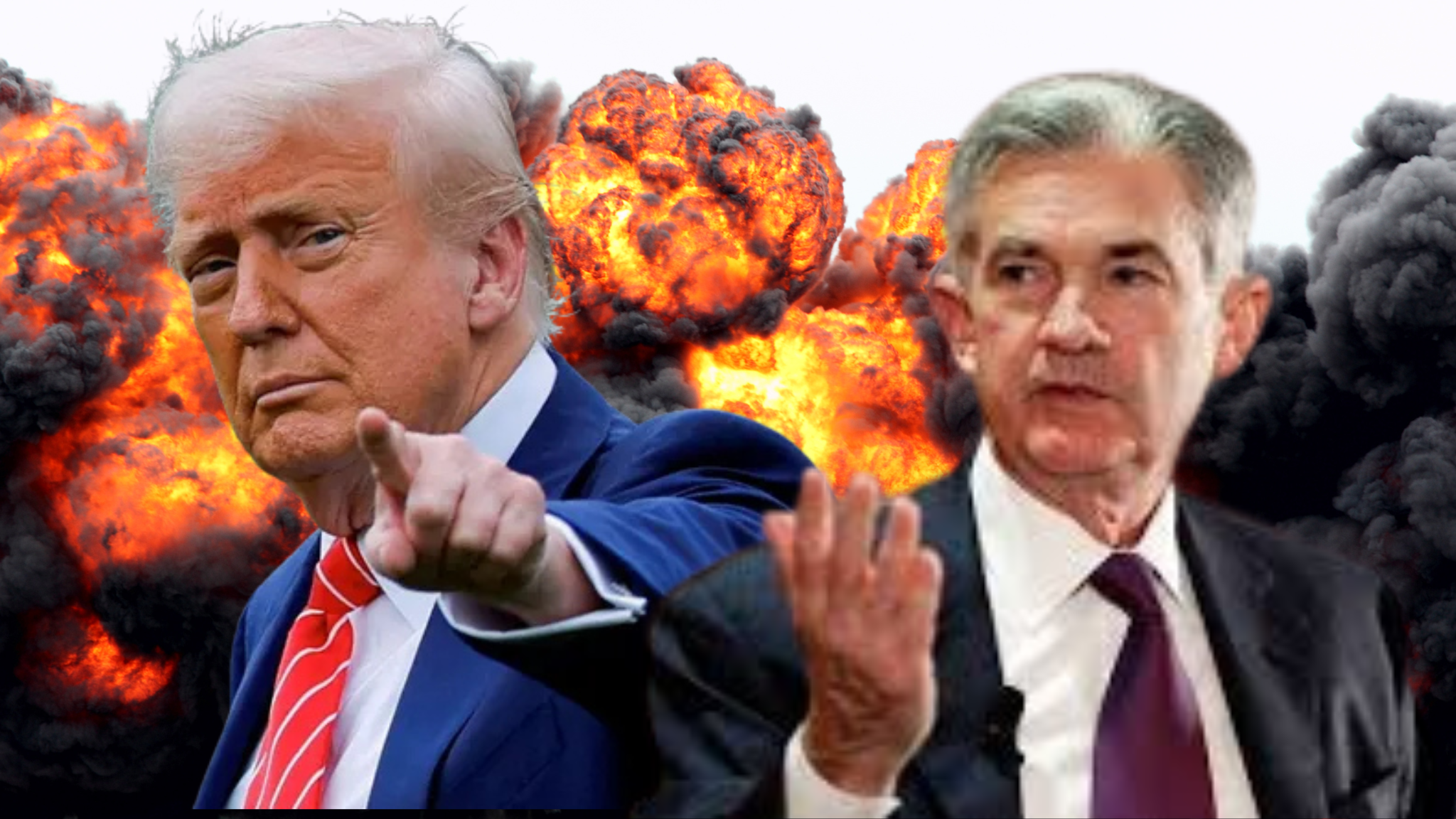In the midst of fierce economic debates and unprecedented financial figures, the U.S. economy stands at a critical crossroads. The U.S. national debt exceeded 36.2 trillion dollars in June 2025, and the political debate intensifies between Donald Trump and Federal Reserve Chair Jerome Powell over interest rates, in a struggle that may not only affect the U.S. budget but also the future of cryptocurrencies and the global economy as a whole.
What is the U.S. national debt? And why is it important for you to know now?
The national debt is the total amount the U.S. government owes to creditors, whether individuals, institutions, or even domestic government entities. This huge figure not only represents a burden on the budget, but is also considered a critical indicator of the state's ability to finance its programs and deal with crises.
36.2 trillion dollars: A look at the latest statistics on American debt in 2025.
As of June 18, 2025, the U.S. national debt reached:
29 trillion dollars owned by the public (bonds held by investors, banks, foreign governments...).
7.2 trillion dollars owned internally. (like Social Security funds).
📊 Debt to GDP ratio:
121% for total debt.
97% for public debt.
How have crises and government programs inflated debt?
Recent years have seen massive government spending:
The COVID-19 pandemic and the subsequent stimulus packages.
The 2008 financial crisis.
Tax cuts like the 2017 law.
All contributed to exacerbating the federal deficit, which is estimated to be 1.9 trillion dollars for 2025, according to the Congressional Budget Office.
Trump vs. Powell: Who decides the future of interest rates?

In 2025, the debate resurfaces. Trump presses for rapid interest rate cuts to revive the economy, while Powell shows caution fearing inflation and the erosion of central bank independence.
🗣️ Trump: "Cut interest rates now!"
🧠 Powell: "Patience is required to ensure financial stability."
Cutting interest against controlling inflation: the direct impact on American debt.
Cutting interest = reducing the cost of debt servicing but may stimulate inflation in the long term. Currently, debt interest consumes 14% of the federal budget, and in May 2025 alone, the government paid 92 billion dollars in interest – which is 25% of monthly revenues.
Is America paying the price for its debts? A look at the cost of interest in 2025.
Simply put: Yes, and at a high price. The costs of debt servicing are rising at an alarming rate, with expectations that they will double over the next decade. Every dollar paid in interest means one less dollar for education, infrastructure, or even defense.
Cryptocurrencies are watching: Does instability turn into an opportunity?
With rising political and financial tensions, digital currencies – especially Bitcoin – have become a favored destination for investors seeking a safe haven.
🪙 Bitcoin price $BTC exceeded 103,000 dollars.
📈 Expectations for Bitcoin to decouple from traditional markets like Nasdaq.
Does the crisis threaten the value of the dollar and stablecoins like USDT and USDC?
Stablecoins face a double risk:
Loss of confidence in the dollar = impact on assets linked to it.
Regulatory pressures = chances of panic if these currencies lose their "guarantee."
📉 $USDC = 0.9997 dollars
💵 $USDT = 1.00 dollar
(Cointelegraph data, June 2025)
The debate is ongoing: What do investors and analysts say about the upcoming phase?
According to @WallStreetMav: The annual deficit will exceed 2 trillion dollars, and interest will make up 25% of government revenues, while @RandPaul warned that raising the debt ceiling will lead to an additional borrowing of 5 trillion.
Conclusion: Is America driving itself towards a debt crisis, or is it preparing for a new phase?
The situation is complicated.
The choices are difficult, and the upcoming decisions will determine not only the American economy but also the global markets. Will Washington succeed in achieving a balance between growth and stability? Or will the debt bubble burst in everyone's face?
#USNationalDebt #PowellVsTrump #DebtCrisis2025
#FederalReserve #TrumpVsFed

